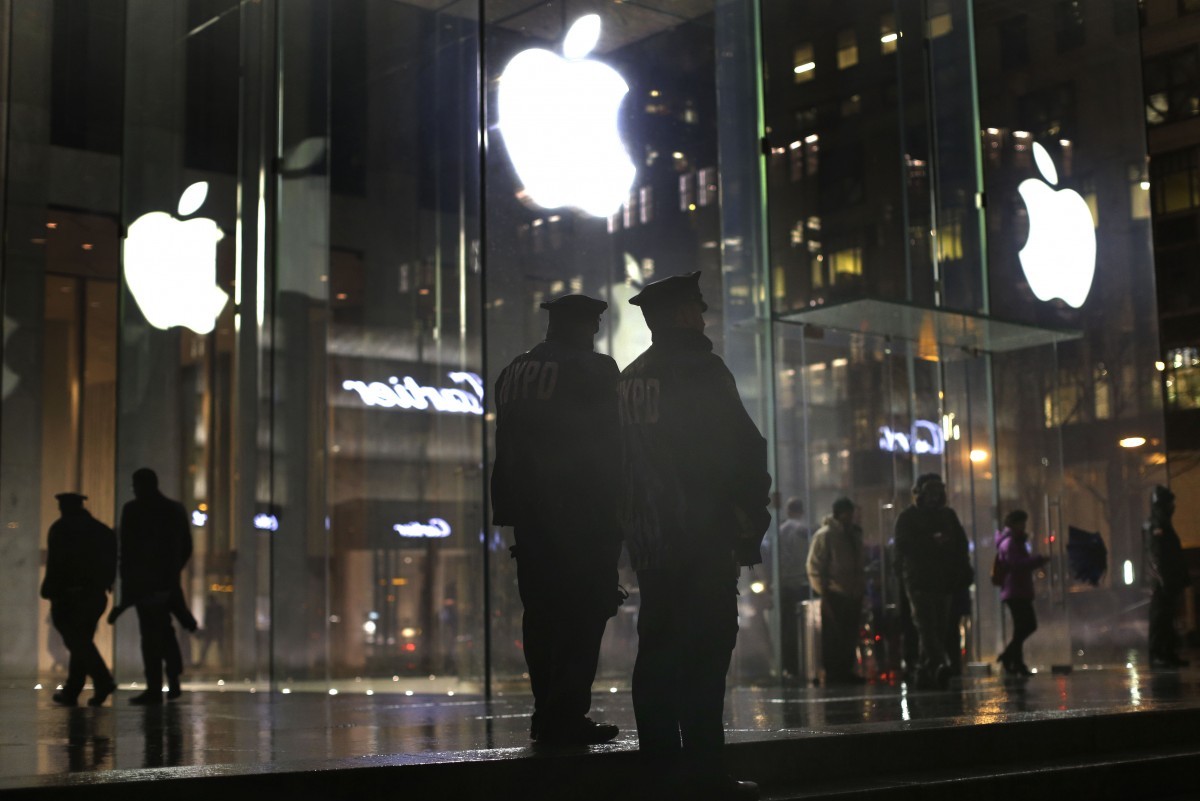Apple Objects to FBI’s Request to Hack iPhone in Boston Gang Case

Police officers stand outside an Apple Store while monitoring a demonstration in New York on February 23. Photo by Julie Jacobson AP
Apple and the FBI are butting heads once again, this time over a case involving one of Boston’s most notorious gangs.
According to the Boston Globe, the tech company has objected to a request from federal prosecutors that it aid in unlocking an iPhone that was in the possession of Desmond Crawford, an alleged member of the Columbia Point Dawgs.
Following the approval of a search warrant in February, investigators were allowed to search and seize an iPhone as well as another mobile device found on Crawford, whom the FBI believes is a suspect in the shooting of an opposing gang leader. In November, Crawford was arrested following a lengthy investigation into the Dawgs by local and federal officials.
FBI agent Matthew Knight wrote in an affidavit last month that he needed assistance from Apple in breaking the passcode on a locked iPhone 6 Plus. Knight believes the phone contains information on gang members, gun and drug activities, and even the drive-by shooting plans.
While Apple has decided not to comment on the situation, according to documents filed by the company in a separate case involving a drug dealer in New York, Apple objected to a request to help investigators hack into an iPhone in Massachusetts.
The latest battle between Apple and the FBI comes as the two sides continue to fight over the San Bernardino terrorism case.
The company and privacy experts believe that if Apple helps in the San Bernardino case or similar cases like the one in Boston, it will essentially open the floodgates, leaving a “back door” for authorities to have access to iPhones across the country.
“While we believe the FBI’s intentions are good, it would be wrong for the government to force us to build a backdoor into our products,” Apple CEO Tim Cook wrote in a letter to customers. “And ultimately, we fear that this demand would undermine the very freedoms and liberty our government is meant to protect.”


